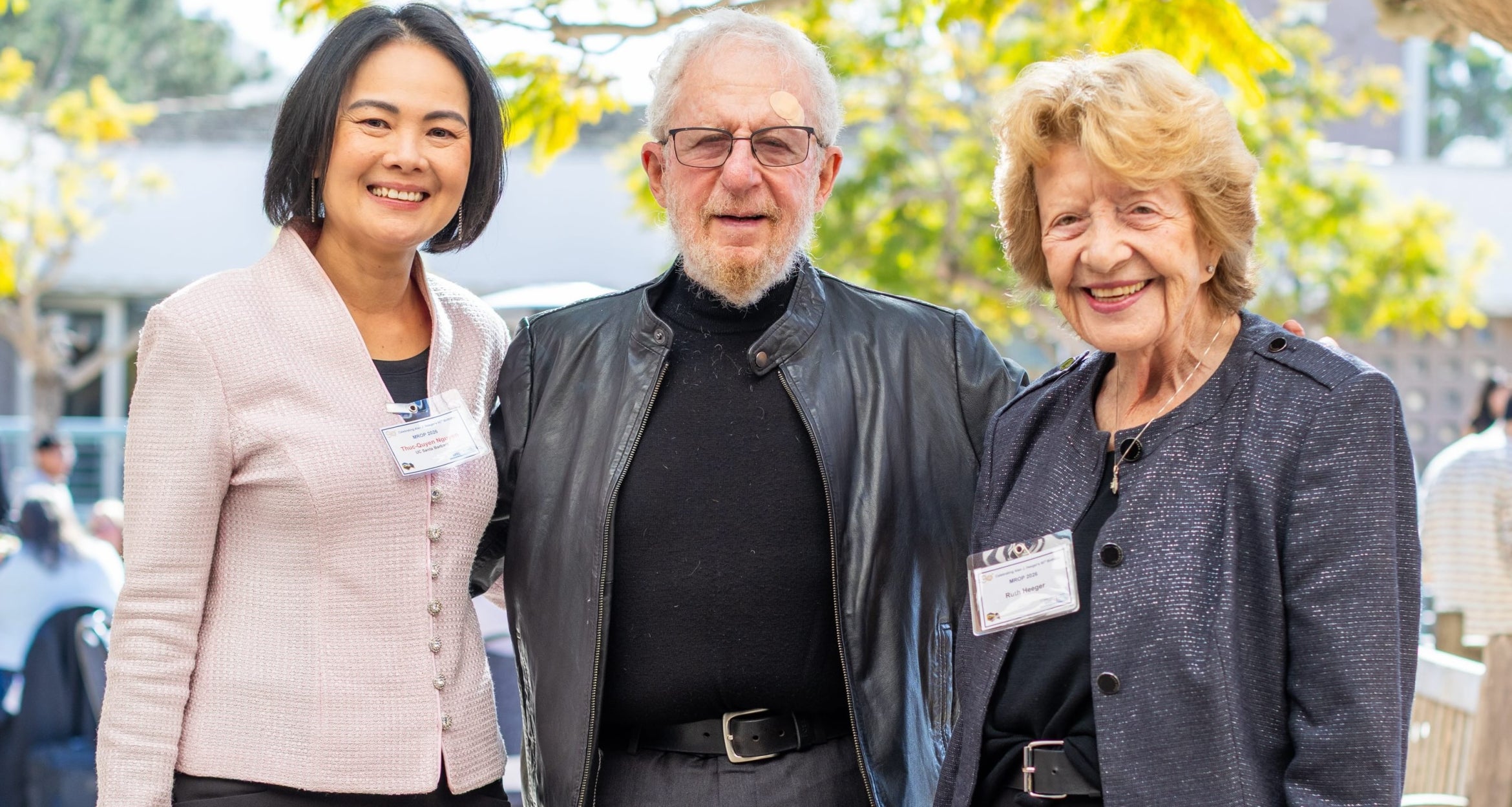Bren School Professor Recognized for Scientific Contributions
Arturo Keller, a professor in the Bren School of Environmental Science & Management, has received a 2015 Agilent Technologies Inc. Thought Leader Award. The award recognizes his significant scientific contributions to the science of engineered nanomaterials (ENPs) in agriculture and provides important technical support to further his work.
Because of their unique properties and characteristics, ENPs can be used to deliver nutrients, pesticides and other materials to plants. But the potential for negative health and environmental impacts is a concern. Like other elements in agricultural soil, such as phosphorous and nitrogen from fertilizers, ENPs end up in freshwater and saltwater systems carried by agricultural runoff water.
Keller and his laboratory group study the fate and transport of the particles once they enter water: how they move through the water, how and at what rate they are taken up by plants and where they concentrate (in roots, stems, leaves or edible parts of the plant), how the particles change under various conditions and their accumulation and biotransformation in organisms that live in water.
“The Agilent Thought Leader Award provides my research team with leading-edge analytical instrumentation to better understand the potential benefits and implications of nanotechnology in agricultural systems, particularly the interaction between nanoparticles and a wide range of natural or novel organic chemicals,” said Keller, who also serves as associate director of the University of California Center for Environmental Implications of Nanotechnology (UC CEIN). “I expect our research team will be able to make significant contributions to the safe and sustainable introduction of nanotechnology in this vital application.”
The Thought Leader Award includes two important pieces of Agilent equipment. One is a liquid chromatography with triple quadrupole mass spectrometer (LC/MS) and the other is an indirect coupled plasma mass spectrometer (ICP/MS). With these gifts Keller can perform better, more sophisticated and more precise science, and Agilent will receive real-world feedback on the instruments, enabling the company to identify how best to evolve its technologies. In all, the gift is valued at $1.45 million.
“It’s a dream come true,” Keller said. “The first thing you need is a great research team. I have that. Next is great instrumentation, and these two instruments bring me to the leading edge. With these, we can explore the nano-bio interface, which is where a lot of the favorable or unfavorable action takes place in terms of nanoparticles.”
Agilent’s ICP/MS will accelerate Keller’s research by allowing him to identify the signature of single nanoparticles and their breakdown products in plant tissues and other samples. The LC/MS will be used to determine the presence, at very low levels, of organic compounds in water. Such compounds may range from normal pollutants to biomolecules such as proteins, enzymes and metabolites associated with ENPs.
The aim of UC CEIN is to identify characteristics of various ENPs and their potential environmental and health impacts, develop techniques for rapid-throughput testing of new ENPs and identify how the particles can be introduced safely into a variety of applications. The research is being used by regulators and others to ensure that ENPs do not become an environmental hazard.
“Through our partnership with Dr. Keller, we will be able to support important research that will improve crop yields and quality through the use of nanoparticle delivery systems for essential nutrients, pesticides and herbicides,” said Sue Strong, Agilent’s vice president of marketing and executive sponsor of the award. “The results of this research will help ensure a clean environment for future generations.”



